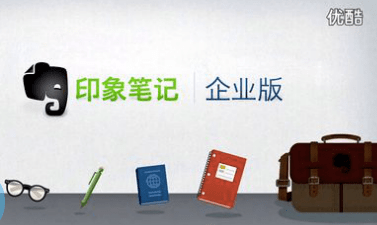A year ago, Evernote kicked off its strategy to bring its personal organization app to China, with the launch of Yinxiang Biji on its own dedicated platform. Now, with 4 million users of the Chinese version, Evernote is taking the next step in monetizing that with the introduction of Yinxiang Biji Business. Phil Libin, CEO and founder of Evernote, announced the news today at the GMIC conference in Beijing, where he also noted that since launching in December 2012, the bigger Evernote Business product has now signed up some 5,000 companies.
China is a big market for Evernote: when Libin announced the launch of Yinxiang Biji a year ago, he said that China was rapidly overtaking Japan to become the company’s second-biggest market after the U.S. Today Libin noted that Evernote now has 4 million users in the country; worldwide, the company has over 60 million users, he said.
“We’re in China because I firmly believe that China will be the crucible of innovation over the next decade,” Libin noted in his keynote today.
Today’s news is not only looking to capitalize on that, but also two other trends in the country. The first is a wider trend of a rising class of businesspeople in the country, looking for better ways of collaborating and organizing their information and work — in short, much the same trends that prompted the creation of the original Evernote Business product.
“China now is shiftting from a labor-intensive to knowledge-intensive society, so the continuing creativity will be the basis of its competition,” Libin said today. “The engine of growth over the past 10 years ago has been manufacturing…but right now, in this room, we are seeing the engine of growth for China changing. It’s going to be information… You’ll have millions of small and medium sized businesses suddenly becoming knowledge companies, realizing that their success depends on how easily their employees can process knowledge and information.”
Amy Gu, GM of Evernote China (which has a dedicated staff of 17, Libin noted today), says that Yinxiang Biji Business is the ninth product from Evernote to hit China, “and the first one dedicated to serving business users. I hope Yinxiang Biji Business will grow up together with Chinese enterprises,becoming the second brain of the domestic enterprises and making them much more smarter.”
The other is, of course, the smartphone boom: Evernote works on multiple platforms, but its sweet spot is in how it was built with the mobile experience of accessing information as a primary goal. China is now the world’s biggest smartphone market, and for many consumers there (and business users), smartphones and tablets are the only devices that people use to access the Internet and stay connected. That means that apps like Evernote’s — which are not created first for desktop use as so many other personal information management apps are — has a key opportunity.
As with Yinxiang Biji, the Business product was created to offer local users a better experience with the Evernote platform: at the time of the original launch of Yinxiang Biji, Libin noted that local users were having a poorer experience because of the difficulties of internet connections between China and the U.S. The Yinxiang platform localizes the experience, which no longer has to pass over the Great Chinese Firewall to work.
As with the original Business product, the Chinese version will give users increased storage space of 4GB monthly. Users also will have the ability to create Business Notebooks to share with colleagues, as well as keep personal notebooks for their own use, in accessible to their business administrators. And as with the other product, users have access to a Library, a common repository of data posted by others; a search feature for scanning across all the data in the files; and a Related Notes feature for suggested relevant content. It will come at a price close to that of Evernote Business: 60 yuan ($9.74) per user per month, or 688 yuan ($112) per user per year, according to the site; Evernote Business costs $10 per user per month.
Libin took the opportunity in his keynote also to weigh in on his opinion of what role China is playing in world innovation.
“Chinese companies don’t have a good reputation for innovation in the West…the reputation that Chinese companies have is that they don’t really innovate. They just copy,” he said. “I don’t think this reputation is right. I don’t think it’s correct…It’s not that the problem is that Chinese companies copy. Everyone copies. Chinese companies…copy and improve. That’s what apple does. that’s what Microsoft does. That’s what Facebook does. Very few companies start with a first of the kind idea.”
In addition to China, Asia is increasingly an important market for Evernote also for partnerships: last week the company also announced a deal with Korea’s messaging giant KakaoTalk for users to be able to record in Evernote memos to themselves while using KakaoTalk, as well as exchanges from the messaging platform. As the Korea Herald points out, the global deal also helps KakaoTalk expand outside of its home market. It also works closely with Docomo in Japan both for selling Evernote in that market, and as a partner in its new accelerator program.
